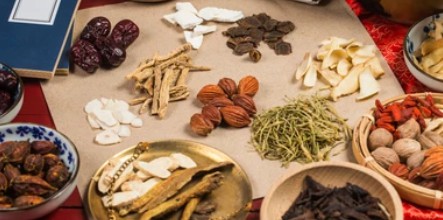Medicinal Plant Untargeted Metabolomics Analysis
Medicinal plants can be used for medicinal purposes and contain chemical components that can treat or prevent disease. Medicinal plants have a long history, and many traditional medical systems, such as traditional Chinese medicine and Western herbalism, have extensively utilized medicinal plants to treat a wide range of diseases. Lifeasible conducts metabolomic studies of medicinal plants based on an advanced technology platform by comparing the metabolites with a database for qualitative and quantitative detection of metabolites in biological samples.

Our Service for Medicinal Plant Untargeted Metabolomics Analysis
Mass spectrometric detection techniques
Mass spectrometry (MS) is our core tool in non-target metabolomics analysis of medicinal plants, mainly including the following.
- Liquid chromatography-mass spectrometry (LC-MS). LC-MS technology is characterized by rapidity, high resolution, and high sensitivity and has been commonly used in the analysis of medicinal plant components.LC-MS technology is capable of detecting and structurally analyzing the separated components, realizing the combination of chromatography and mass spectrometry technology.
- Gas chromatography-mass spectrometry (GC-MS). GC-MS can separate the components by gas chromatography and detect and analyze the structure of the separated components by mass spectrometry.
- Nuclear magnetic resonance (NMR). NMR technology is also widely used in metabolomics research and is suitable for detecting and analyzing most metabolites.
In addition, we also offer a comprehensive range of coupling technologies. Coupling techniques play an essential role in non-target metabolomics analysis of medicinal target plants and include the following.
- LC-MS/MS. We perform separation by liquid chromatography followed by detection by tandem mass spectrometry, a technique that provides more structural information and is suitable for analyzing complex samples.
- GC-MS/MS. The combination of gas chromatography and tandem mass spectrometry is suitable for analyzing volatile compounds.
- NMR with other techniques. NMR can be coupled with other techniques, such as LC or GC, to provide more comprehensive metabolite information.
 Fig.2 Our service process. (Lifeasible)
Fig.2 Our service process. (Lifeasible)
Sample Request
- Sample type. Plant tissue, dried herbal powder, herbal soup.
- Biological replicates. 3 biological replicates are recommended.
- Sample requirement. Plant tissue ≥200mg, liquid soup type ≥0.5ml.
- Sample preparation principles. Principle of representativeness, the principle of promptness, the principle of separate parts, the principle of contamination control, and the principle of low temperature.
Application of Medicinal Plant Untargeted Metabolomics Analysis
- Identification and quality evaluation of medicinal plants.
- Research on conservation of medicinal plant resources.
- Research on the material basis of medicinal effect and pharmacological action of medicinal plants.
- Research on the metabolic pathway and metabolic engineering of functional active ingredients of medicinal plants.
- Selection and breeding of Chinese medicinal varieties and research on stress resistance.
Highlights of Our Medicinal Plant Untargeted Metabolomics Analysis
- Professional database. We have a database of thousands of standardized products with high reliability.
- Wide range of species. We cover many medicinal plant species, no less than hundreds of species.
- Advanced mass spectrometry platform. We have a high-resolution mass spectrometry platform to ensure the accuracy of the test results.
- Professional technical service team. Our professional technical team has rich experience in Untargeted metabolomic analysis of medicinal plants.
Lifeasible provides accurate, high-quality, Untargeted metabolomic analyses of medicinal plants to help advance medicinal plant research. If you are interested, please feel free to contact us.
For research or industrial raw materials, not for personal medical use!

 Fig.2 Our service process. (Lifeasible)
Fig.2 Our service process. (Lifeasible)